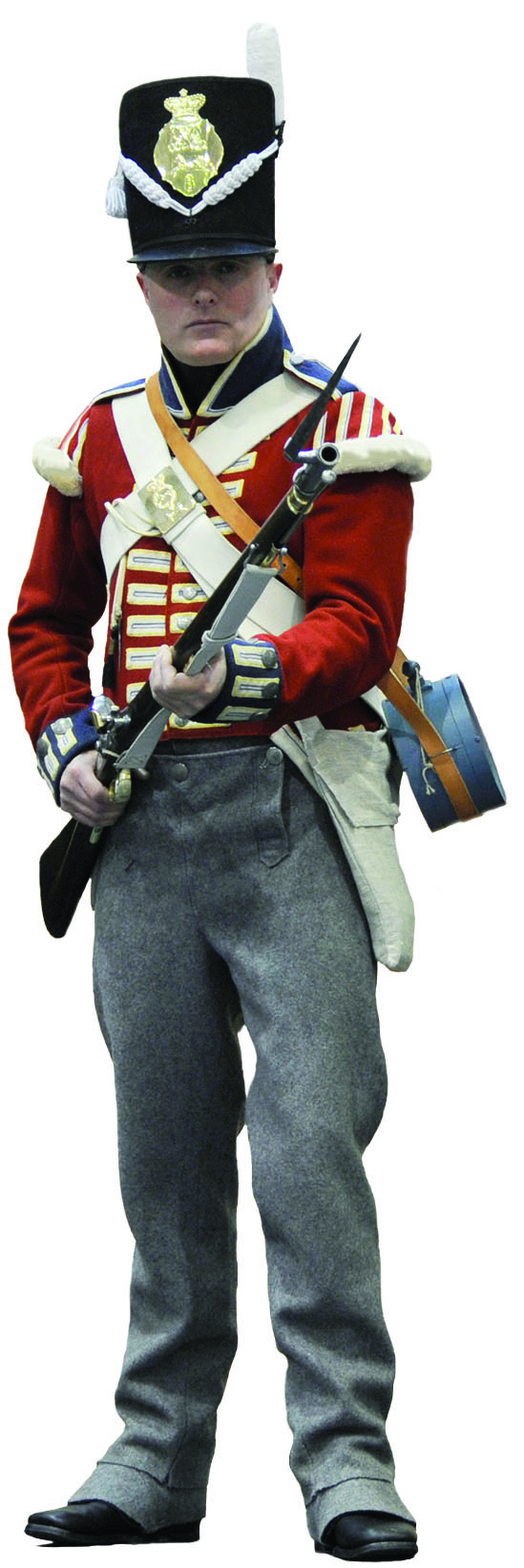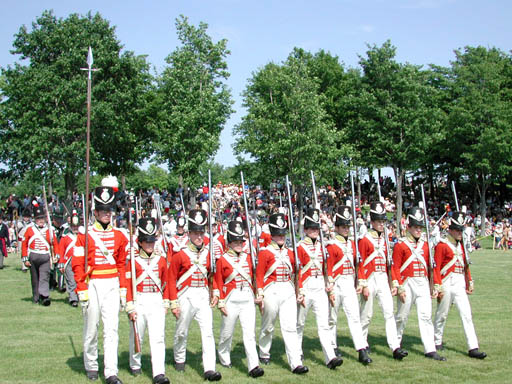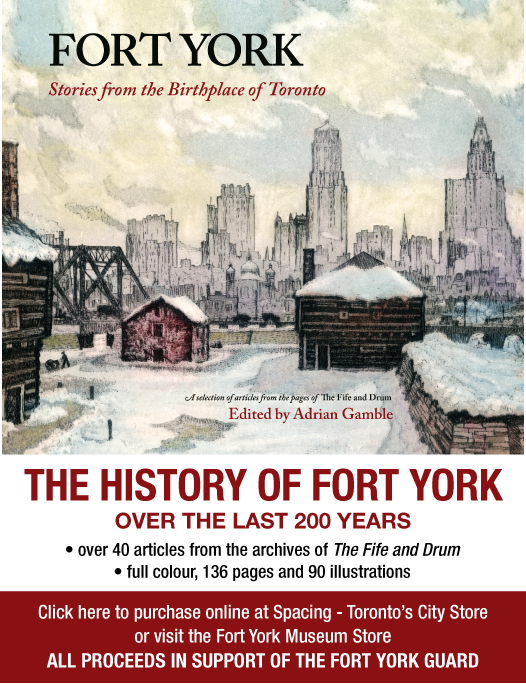Richard Haynes turns in his musket
 Fort York site co-ordinator Richard Haynes retired in January after just over 30 years among the barracks and blockhouses of Toronto’s founding landscape. “I owe the fort (and the City) everything,” he tells the F&D, “for providing me with a great life, career and some wonderful memories.” He made a difference to the place in all kinds of ways. “His smile, wry wit and ability to call things as he saw them,” says Kevin Hebib, “always helped his colleagues.”
Fort York site co-ordinator Richard Haynes retired in January after just over 30 years among the barracks and blockhouses of Toronto’s founding landscape. “I owe the fort (and the City) everything,” he tells the F&D, “for providing me with a great life, career and some wonderful memories.” He made a difference to the place in all kinds of ways. “His smile, wry wit and ability to call things as he saw them,” says Kevin Hebib, “always helped his colleagues.”
Richard was born in Oxford, went to school in Winchester and earned his first history degree from the University College of Swansea, South Wales, in 1986. At the optimistic age of 21, he set out for Windsor, Ontario, to earn his MA. Laurie Leclair married the young scholar two years later and they sought their fortune in Toronto, where Richard was hired as an historical interpreter in August 1989.
“The fort has always been busy, sometimes crazy, but never dull,” he says, “and I’ve been lucky to work with some wonderful people over the years.” It’s hard not to regard those early days (before responsibilities grew) as the best ever, “when it was so much fun” just to come to work. There was satisfaction as well, “despite all the problems and challenges that went with the job.”
Although many celebrities, including royalty, passed through the national historic site while he was there, Richard considers the highlight of his career to have been the 200th anniversary of the Battle of York, held on the sunny weekend of April 27, 2013. Among the many events planned by the City, the Canadian Army and Fort York was Walking in Their Footsteps, the Richard as a private in the 8th (King’s) Regiment, defending muddy York.
This image appeared on posters all over the city during the Bicentennial of the battle in the spring of 2013. Courtesy 32 Canadian Brigade Group walking tour that began at dawn where the Americans landed and traced the course of the fighting back to the fort. “I will never forget looking back and seeing 700 people following me on that tour,” he marvels. “It was special and will never be repeated.”
Richard himself, of course, will never be repeated. “I have always been in awe of his steadfastness and compassion,” adds Hebib who, as a program officer at the fort, has known the man for decades. “Richard is a disciplined and measured man” who brought to his work “the thoughtfulness and focus he developed as an accomplished martial artist.”
David O’Hara also worked with Richard for most of his 15 years at the fort, a period that included management of the Invictus Games, development of the Indigenous Arts Festival and the completion of the Visitor Centre. “It was a pleasure working with Richard,” he says, “to see so many initiatives through to completion.”
In early March the Friends of Fort York (through the generosity of its chair) held a very English dinner for Richard at an old pub in the centre of the city. Conforming to the style of its subject, there were no formal speeches. The name of the place – The Queen & Beaver – might be taken as symbolic of Richard’s own career. And as a summary of those 30 years (as if we were writing the man’s obituary!) we have the words of another long-standing colleague: “There never was a kinder man.”




